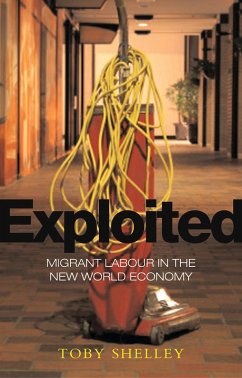From cleaning to construction, from agriculture to domestic work, every day migrant labourers are exploited and enslaved. Extra hours are squeezed out of Polish food packers, and trafficked African children are used for forced labour. Low wages are used to drive down prices from the oil industry to airport services.
In this book, Toby Shelley shows that current unprecedented flows of migrant workers are a direct result of economic liberalization. The appalling conditions and legal abuses which confront these workers are not a premodern aberration, but an integral part of the global economy. Shelley argues that even governments, keen to protect big business, are complicit in this exploitation; their 'law and order' approach on immigration being part of this complicity.
Based on interviews and investigations with workers, unionists and activists, Exploited is a powerful and shocking read.
In this book, Toby Shelley shows that current unprecedented flows of migrant workers are a direct result of economic liberalization. The appalling conditions and legal abuses which confront these workers are not a premodern aberration, but an integral part of the global economy. Shelley argues that even governments, keen to protect big business, are complicit in this exploitation; their 'law and order' approach on immigration being part of this complicity.
Based on interviews and investigations with workers, unionists and activists, Exploited is a powerful and shocking read.

